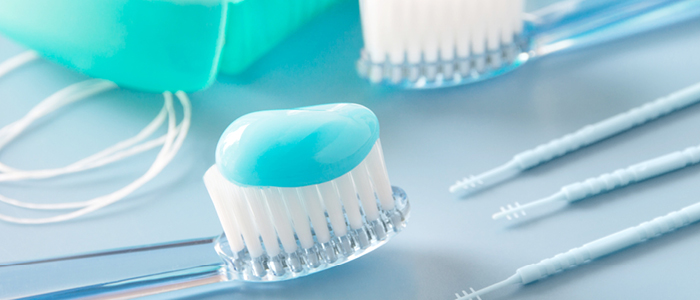Taking care of dental implants

You have had a dental implant inserted. This treatment does not cause great stress on your body. Nevertheless, it is essential to cooperate with your dentist and to follow to their instructions.
Postoperative recommendations
- Local anaesthetics do not affect your ability to drive. However, we recommend that someone accompanies you. This is essential if you undergo a general anaesthetic.
- You can drink shortly after the implantation. Cold drinks help to relieve any pain and swelling.
- To reduce bleeding, do not drink alcohol and avoid drinking coffee and black tea for a few days after the procedure.
- You can eat after the effect of the anaesthesia has worn off (approx. two hours), but be careful. Avoid biting on the implant.
- Cut down on smoking as much as possible. Smoking slows healing and increases the risk of complications.
- Do not play any sports or do any physically demanding activities on the day of the procedure. In the following days, take into account your current state of health.
- You can brush your teeth from the first day after the surgery. Keep the toothbrush away from the wound at least until the stitches are removed.
- Sit rather than lying down to reduce wound pain and congestion. Place a bigger pillow under your head when sleeping. Do not lie on the side where the implant has been placed.
To ease swelling and relieve the pain
A painkiller should be taken as soon as possible; take it 30 minutes before the anaesthetic wears off, at the latest. Then follow your dentist’s advice and consider your individual pain. A mild swelling may also appear at the operated site.
- Cool the cheek from the outside using ice bags as your dentist recommends.
- Take the painkillers prescribed by your dentist.
Contact your dentist immediately!
If any of the following symptoms appear, contact you dentist immediately.
- Pain worsens over time, painkillers do not work.
- Sensitivity at the operated site does not return.
- Pain or swelling does not recede or even worsens several days after the procedure.
- Bleeding does not stop. (Saliva may remain pink for 1–2 days.)
- In the event of loosening or loss of a temporary prosthetic restoration, cover screw or any other component.
- Any symptoms not indicated here which cause misgivings or doubts.
Oral hygiene
To ensure the long life of your implants, it is necessary to maintain regular and thorough oral hygiene. It is not only important to use the right toothbrush, but also other tools depending on your particular prosthetic restoration and anatomy, e.g. dental floss, interdental brushes and mouthwash.
- Your dentist or dental hygienist will recommend the proper tools for oral care.
- Regular check-ups with a dental hygienist are as important as preventive check-ups by your dentist.
- Insufficient oral hygiene can cause gingivitis (inflammation of the gums), which has a negative effect on the service life of a dental implant.
With LASAK dental implants, you can undergo magnetic resonance imaging (MRI) following a consultation with your dentist.
